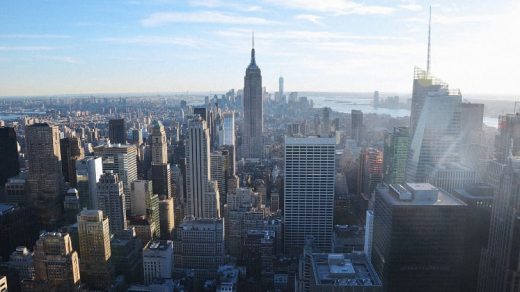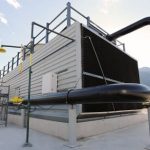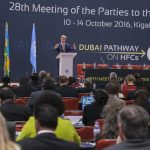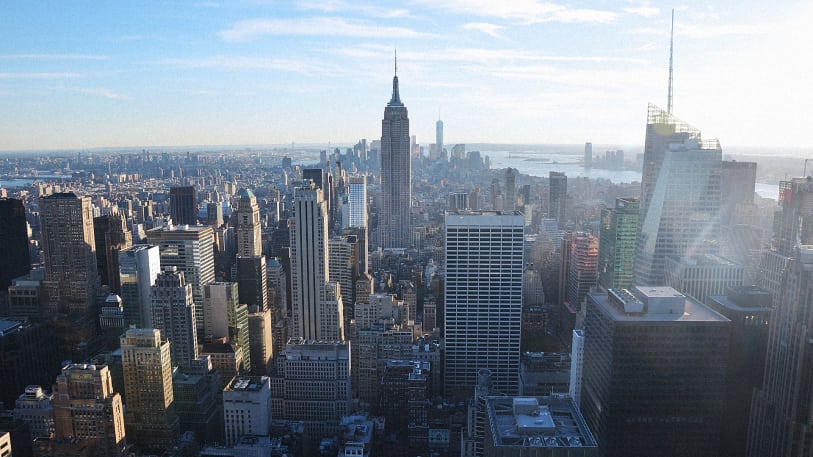Michael Bloomberg Says Cities Must Now Lead The Way On Climate Change
With a climate denier in the White House, big cuts proposed at the EPA and Department of Energy, and Republicans wanting to kill the Paris climate agreement, America doesn’t look like a country aggressively taking one of the biggest threats of the age. Scientists and climate activists have reacted with mounting concern as Trump has threatened every aspect of Obama’s climate legacy, from his energy efficiency standards to his Clean Power Plan.
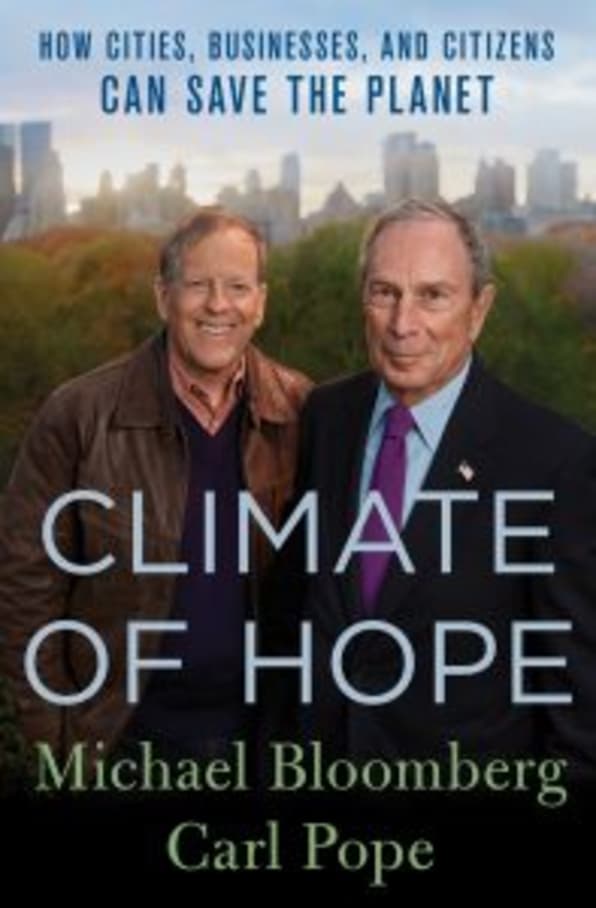
Outside of Washington, D.C., however, the prospects for climate action look more favorable. You can point to what’s happening at the city level, where mayors are promoting low-carbon buildings, electric cars, and more resilient infrastructure. You can point to the energy industry in general, which seems more concerned with market signals than political signals. And you can point to how strong majorities of Americans want politicians to accept and face up to global warming.
In their new book, Climate of Hope: How Cities, Businesses, and Citizens Can Save the Planet, Michael Bloomberg and Carl Pope, the former executive director of the Sierra Club, argue that a beyond-D.C. approach offers the best opportunity for dealing with climate change. Mayors have more autonomy than national leaders, they say. They’re more accountable to voters for dealing with climate-related problems like pollution and extreme weather events. They originate most of the emissions that cause climate change, and they face the greatest threats from its impacts. And urban populations are generally more supportive of climate action than rural ones.
“Mayors tend to be more pragmatic and less ideological than national legislators, because they are more accountable to voters, and more visible,” former New York City Mayor Bloomberg writes. “The public can see what mayors do, while it’s harder to understand what elected officials at the state level do . . . and much harder at the federal level.”
Empower Cities To Lead
If cities are going to be centers of climate action, they need more tools for the job. “Giving more cities authority to take action on their own–particularly on energy and transportation–is one of the most important steps we can take to address climate change,” Bloomberg writes in the book.
If the Trump administration decides to leave the Paris climate agreement, Bloomberg says U.S. cities should consider joining the accord in their own capacity. “Washington will not have the last word on the fate of the Paris Agreement in the U.S.–mayors will, together with business leaders and citizens,” he wrote in a New York Times op-ed last year.
That independence could also include allowing them to make choices independent of state or federal authority on where they buy electricity (only six states currently sanction this). Twenty-five U.S. cities have now committed to buy all their power from renewable sources.
Or it could mean borrowing money for climate investments more easily. Only 4% of the world’s cities currently have their own credit ratings, enabling them to enter financial markets, Pope says. Others don’t have the power to raise taxes, including many in Africa and South America.
Nations have access to funding that cities don’t. For example, small nations can build infrastructure with loans from the World Bank, while cities don’t enjoy access to equivalent public institutions. “The good news is that the special interests that stand to lose from [climate initiatives] hold far less sway over mayors than national legislators,” the authors write. “The bad news is that cities often face legal obstacles in financing and implementing these solutions.”
Invest In Electric Vehicles (And Communities)
Though energy tends to get all the attention, transportation is actually at least as important these days from a climate point of view. Pope says cities should invest in an all-electric future, preferably based around shared, autonomous vehicles. “That would free up real estate in cities [in the form of parking spaces] and greatly reduce the amount of energy people need to get around. It would also mean that people can live closer to work,” he says.
Of course, shifting to autonomous cars is likely to put a lot of drivers out of work. And for that reason, Pope says we also need a stronger safety net to manage the social transition from an economy based around fossil fuels to one based around clean power and transport. “We need climate insurance policies so people whose jobs change, or who lose their jobs, aren’t left behind,” he says. “One of the major reasons we have such a hard time in the U.S. [with climate change] is that we do a bad job of taking care of people in their communities.”
Subsidize The Stuff We Need
Governments continue to subsidize climate change by handing out billions to the fossil fuel industry, either at the exploration end or the consumer one. Globally, this public assistance may amount to almost $ 5 trillion, according to the International Monetary Fund. Pope and Bloomberg argue that we should level the playing field for all energy, allowing renewables to reap their rewards as inevitably lower cost technologies.
Another example is the U.S. cotton industry, which wins large federal subsidies, despite its record of depleting water resources. A ProPublica investigation found that Arizona farmers have received more than $ 1.1 billion in cotton subsidies in the last 20 years. In California, they’ve received $ 3 billion. Pope suggests redirecting this money to protecting soil and conserving water. Instead of getting subsidies to grow cotton that we don’t need, he says, farmers would get money when their soils have greater carbon content.
“Plants are marvelous machines for turning gaseous carbon into solid carbon in the soil, and we ought to pay farmers to do that,” he says. It’s possible to monitor carbon content from the air, making the subsidy program easier to manage, he adds. (As yet, though, the idea of paying farmers to conserve their soil doesn’t seem to have been tried.)
Emphasize The Opportunity
Bloomberg and Pope say we need to reframe the climate debate to emphasize economic opportunity and immediate benefits. The language of sacrifice and long-term threats has alienated people who might otherwise support, say, energy technologies that cut electricity bills.
“The conversation going forward should be about opportunity,” says Pope. “That’s a conversation that can unite people. In the short term, we can be more prosperous. In the long term, we can reduce climate risk. In the past, we only talked about the long term, and that was a major blunder.”
While the need for new ideas seems urgent now, Pope thinks Trump’s impact on U.S. climate efforts will be less serious than some fear. “He will slow things down a little bit, but things have been accelerating quite rapidly in the past five years, and they’re going to keep on accelerating,” he says.
(39)

